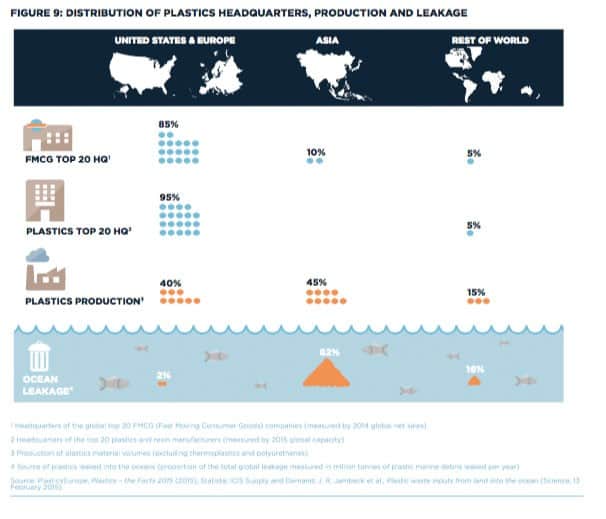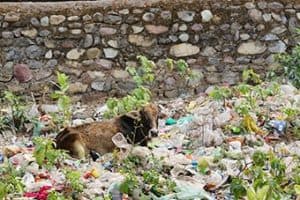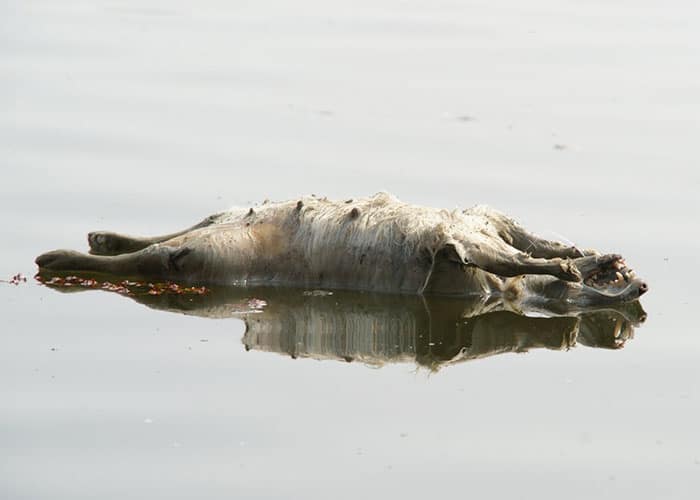Plastic waste in the sea and the environment is the result of a lack of environmental awareness in all countries of the world. But in order to solve or reduce the massive problem with plastic waste in the environment and in the ocean, we need to address the very causes in the countries where the largest proportion of plastic waste ends up in the oceans. The Ellen MacArthur Foundation's study THE NEW PLASTIC ECONOMY - RETHINKING THE FUTURE OF PLASTICS₁ creates a good overview of how plastic waste is created in the oceans. According to the study, America and Europe (40%) and Asia (45%) account for the largest share of global plastic production. Yet, the Americas and Europe contribute only 2% of the world's ocean plastic waste. Instead, Asian countries account for 82% of the plastic waste in the ocean. This article is not about finding a culprit for the Plastic waste in the environment and especially in the ocean, but about finding a solution to one of the two biggest environmental problems on our planet. Today you'll learn why Asia has such a big plastic waste problem and how it can be solved.

5 Asian countries account for 60% of the world's marine plastic waste
To paint a brief picture: Currently, there is about 1kg of plastic for every 3kg of fish in the sea. Several global studies show that China, Indonesia, the Philippines, Vietnam and Thailand have the largest share of plastic waste in the sea. But why is the pollution by countries from Asia particularly high? It's actually quite logical: consumption in Asian countries is growing rapidly and along Western lines. The demand for new items is increasing because the booming economy means there is more money available. So far so good. With this strong economic growth, only one of the most important systems is not keeping up: the waste disposal system. An issue that only brings costs with it and at first glance seemed possibly unproblematic. Dubai comes directly to mind again as an example. 500,000 people work there for a pittance, but every week new construction projects are announced. Profit comes first. But Dubai is more appearance than reality. Skyscrapers as far as the eye can see, but the sewage system here has not been adapted in parallel with huge construction projects. Every day, hundreds of trucks drive the fecal matter from the city to the sewage treatment plants. What is true for Dubai is also true for Asian countries like China, Vietnam or Thailand. And it is precisely here that the solution to the plastic waste problem must be found, even if the industry has little interest in the disposal of plastic waste due to the high costs involved.
Often still little insight from Asian countries
It so happens that Asian countries rarely agree to new agreements on climate change or the plastic waste problems and instead insist on their right to development. However, if development continues to be based only on the economic aspects, the gap between economic boom and waste management system will widen with each passing day. In the existing deficient disposal systems in Asia, only about 40% of plastic waste is collected. Due to the inadequate ways to dispose of the waste, most of it ends up in the sea via detours (wind, rivers and the like). In 2012, a giraffe died in an Indonesian zoo because it had over 20kg of plastic in its stomach. So it is by far not only the oceans that are affected, but also on land there is a huge plastic waste problem, which is due on the one hand to the inadequate disposal systems and on the other hand to the personal attitude of each individual.
Plastic waste in the Asian environment - changes in the law, fees and bans are needed

Many garbage collectors are on the road to finance their lives with the plastic garbage. In Asia, there is so much trash in the environment that collectors are already focusing only on the valuable trash (like deposit bottles). The profit idea is in the foreground. What is driven by the pure thought of survival for the deposit collectors (earning between 0,50€ - 5€) is pure ignorance for the industry. As you can see in the Interview with Dr. Bernhard Bauske from WWF As you may have already read, we are fighting for industrial companies in Asia to also be responsible for the disposal of the plastic they put into circulation. However, it is no wonder that the industry is not very enthusiastic about this because of the high disposal costs. Little by little, but still far too slowly, laws are being adapted, bans imposed and fees increased. Since the beginning of 2016, the equivalent of about 33 cents has been charged for a plastic bag in 23 Asian cities. Even though this fee has had a major effect on the consumption of plastic bags, this decision only affects citizens for the time being. China has already had a ban on thin plastic bags and a high fee for thicker plastic bags since 2008. According to a study by the University of Gothenburg, consumption of plastic bags in China has subsequently fallen by half.
How can plastic waste be reduced in Asia?
In my opinion, the industrial companies must be held accountable and responsible for the disposal of the plastic waste that is put into circulation. The rethinking of the chosen packaging materials would happen very quickly in this way. Currently, plastic is simply the cheapest material, so there is no reason for the industry to switch from plastic to sustainable and organic packaging.
What experiences have you had with plastic waste? Just write me an email or a comment. In the next week I am for some time on Sri Lankato take a closer look at the plastic problem in Asia.
Best regards,

PS: On Sri Lanka I got a personal impression of the plastic waste in Asia. Read the blog article now My travel experiences in Sri Lanka and see what I was allowed/needed to experience there. If you are also an environmentally conscious person, then step now our Facebook group for worldwide plastic waste CleanUps at. Thank you for your support!
References:
₁ https://www.ellenmacarthurfoundation.org/publications/the-new-plastics-economy-rethinking-the-future-of-plastics






And of course the numerous European tourists plus shipped plastic waste from Europe do not contribute at all to the conditions in Asia...
Pretty Eurocentric written and also sounds like white saviour complex.
Hi Sarah! It's more about passing on our knowledge about the disposal and avoidance of plastic waste to countries in Southeast Asia as quickly as possible. This article is not meant to absolve us - especially because most of our waste from Germany is shipped to Asia.
The article is already a bit older - I will incorporate this in a timely manner and justify it more clearly.
Thanks for your feedback and best regards
Christoph
Comments are closed.